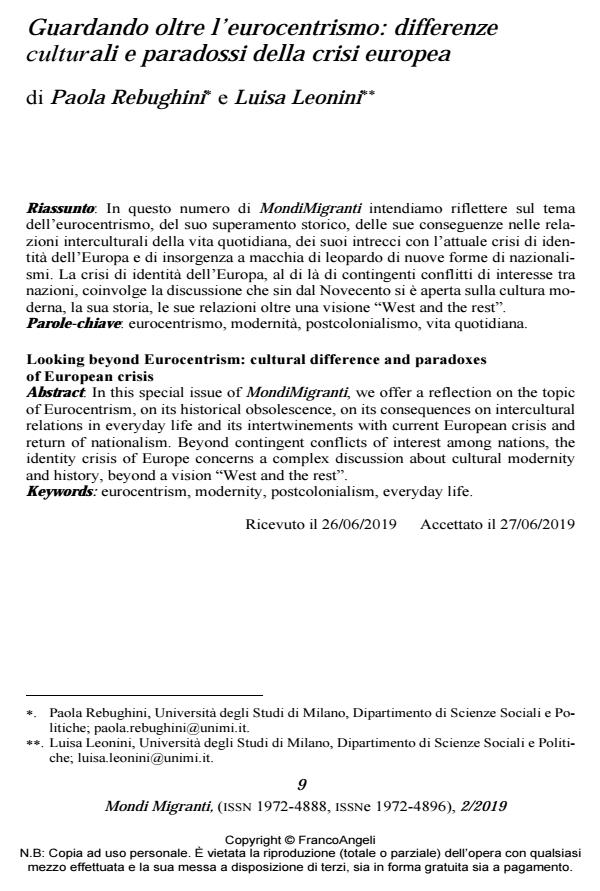Guardando oltre l’eurocentrismo: differenze culturali e paradossi della crisi europea
Journal title MONDI MIGRANTI
Author/s Paola Rebughini, Luisa Leonini
Publishing Year 2019 Issue 2019/2
Language Italian Pages 12 P. 9-20 File size 197 KB
DOI 10.3280/MM2019-002001
DOI is like a bar code for intellectual property: to have more infomation
click here
Below, you can see the article first page
If you want to buy this article in PDF format, you can do it, following the instructions to buy download credits

FrancoAngeli is member of Publishers International Linking Association, Inc (PILA), a not-for-profit association which run the CrossRef service enabling links to and from online scholarly content.
In this special issue of MondiMigranti, we offer a reflection on the topic of Euro-centrism, on its historical obsolescence, on its consequences on intercultural rela-tions in everyday life and its intertwinements with current European crisis and re-turn of nationalism. Beyond contingent conflicts of interest among nations, the identity crisis of Europe concerns a complex discussion about cultural modernity and history, beyond a vision "West and the rest".
Keywords: Eurocentrism, modernity, postcolonialism, everyday life.
- Confini contesi: chiusure selettive e iniziative solidali Maurizio Ambrosini, in REMHU: Revista Interdisciplinar da Mobilidade Humana /2022 pp.23
DOI: 10.1590/1980-85852503880006403
Paola Rebughini, Luisa Leonini, Guardando oltre l’eurocentrismo: differenze culturali e paradossi della crisi europea in "MONDI MIGRANTI" 2/2019, pp 9-20, DOI: 10.3280/MM2019-002001